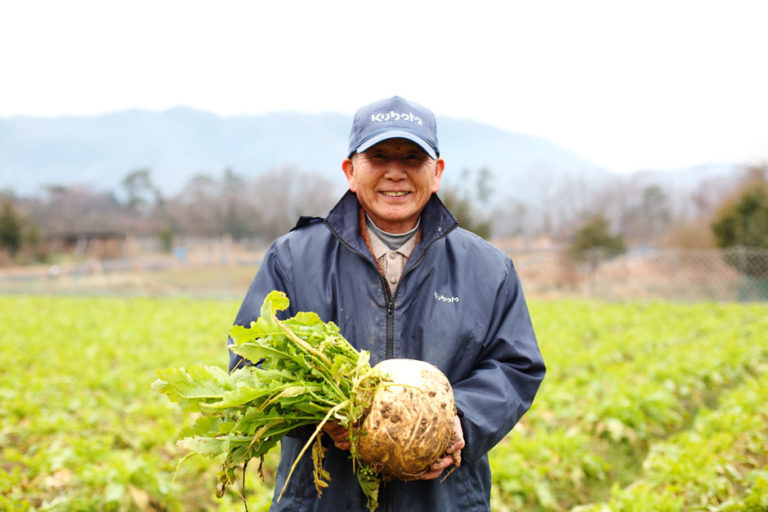Addressing the Challenges of Farming with Homemade Pickles from a Farmer and a Curry House
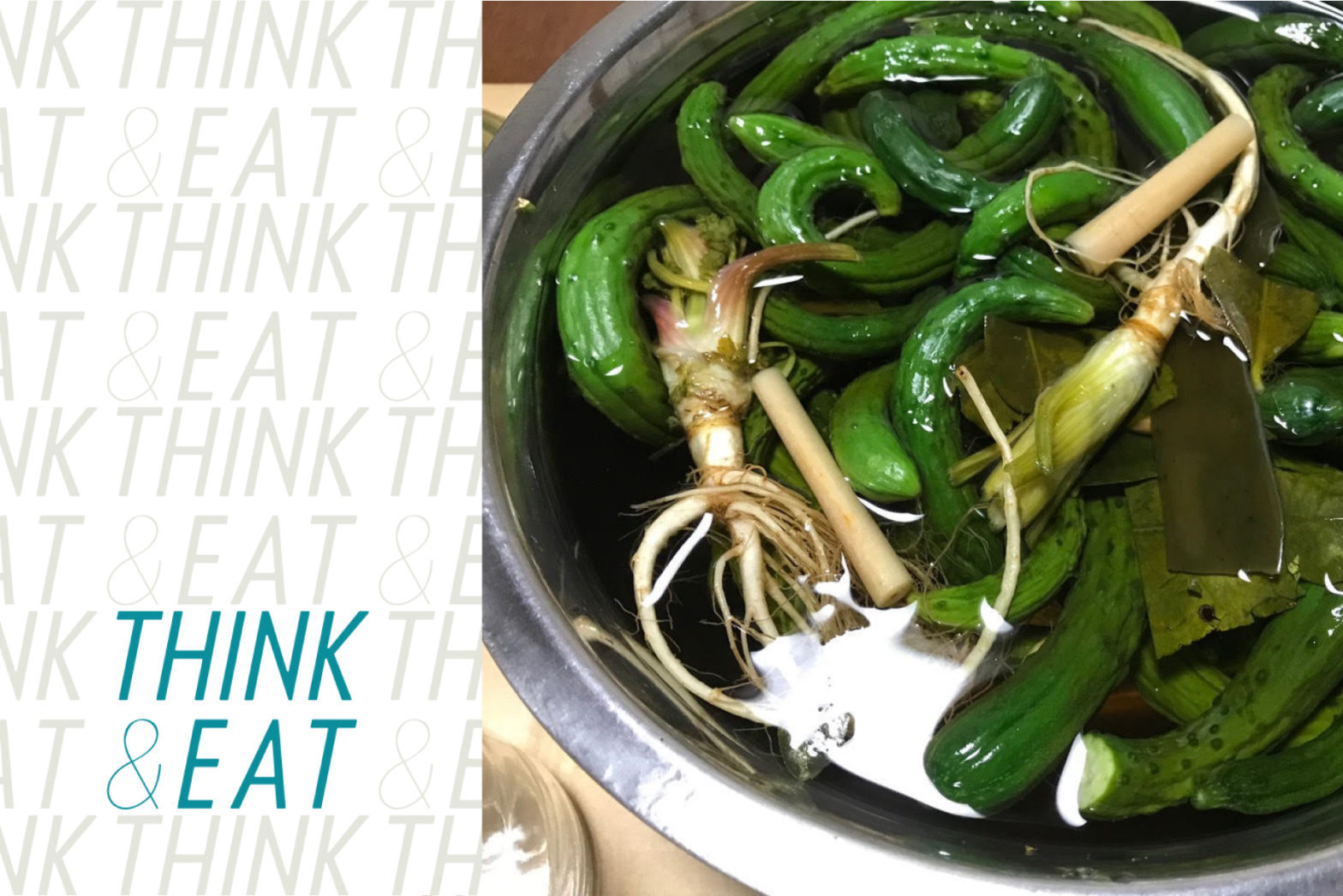
A farmer and a curry house tackle the issue of food waste
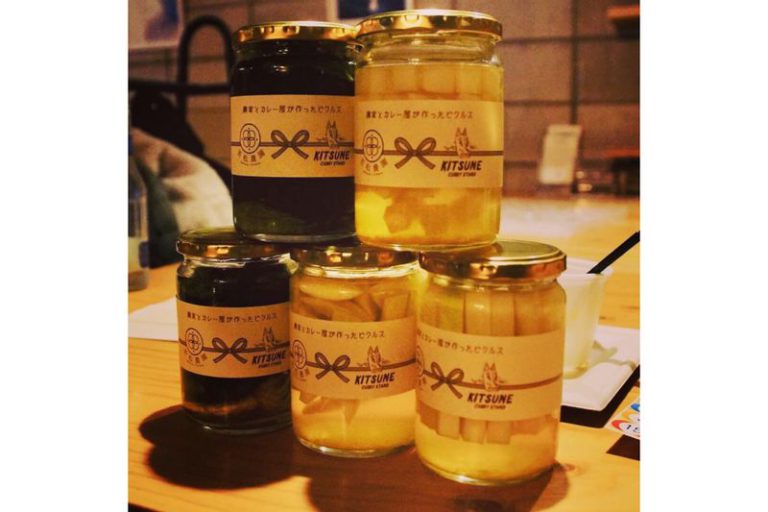
Wakamatsu Farm grows cucumbers in Shimotsuke, Tochigi Prefecture. The cucumbers grown with care are shipped to local farmers’ co-ops and supermarkets, while the smaller ones are used in homemade pickles developed in collaboration with a curry house.
Pickle jars are filled with cucumbers about 10 cm in length. These small cucumbers are treated as ‘substandard’ because they do not meet market standards and are rarely distributed. They are typically discarded. Why did the farm focus on cucumbers that have no market value? Yasuyuki Wakamatsu, the farm’s representative, explains.
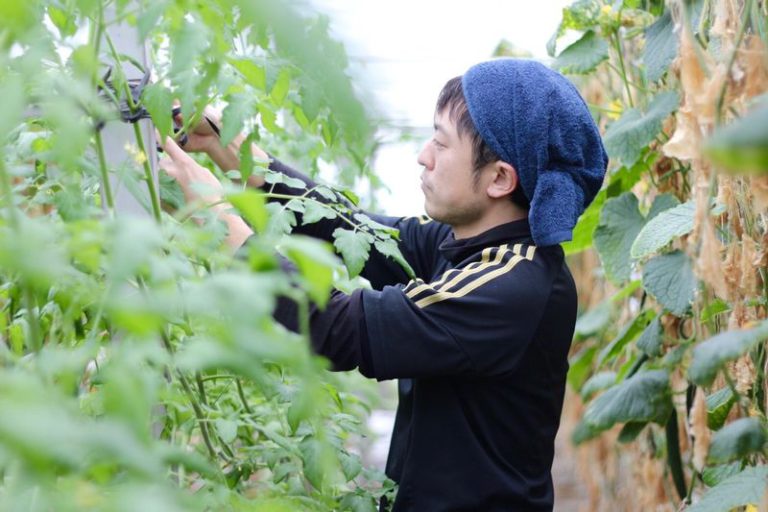
“When I took over the family business and started farming, I was surprised by the number of discarded cucumbers. If they were misshapen or small, they were off-spec, no questions asked. If you included the ‘picked’ cucumbers, 10% to 20% were thrown away.”
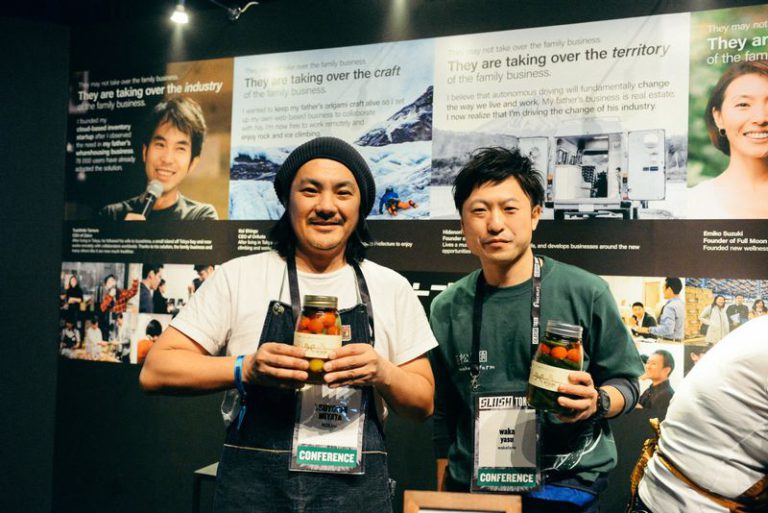
Considering waste reduction an urgent issue, Wakamatsu joined forces with the curry house KITSUNE CURRY STAND (now Komainu Coffee), which was also concerned about food waste. Together with the owner, Tsuyoshi Miyata, he set about developing processed products using off-spec cucumbers.
The smaller the cucumber, the better it suits pickle making
How can off-spec cucumbers be turned into a processed product? Wakamatsu’s answer was to make pickles with minimal development expenses.
“Pickle making involves only a few steps, so you don’t need a large facility. Getting permission from the public health department for pickle production was easy, which was perfect for starting small,” explains Wakamatsu.
In fact, small cucumbers are ideal for making pickles. Wakamatsu says, “they have a concentrated umami flavor and soak up the flavor well.”
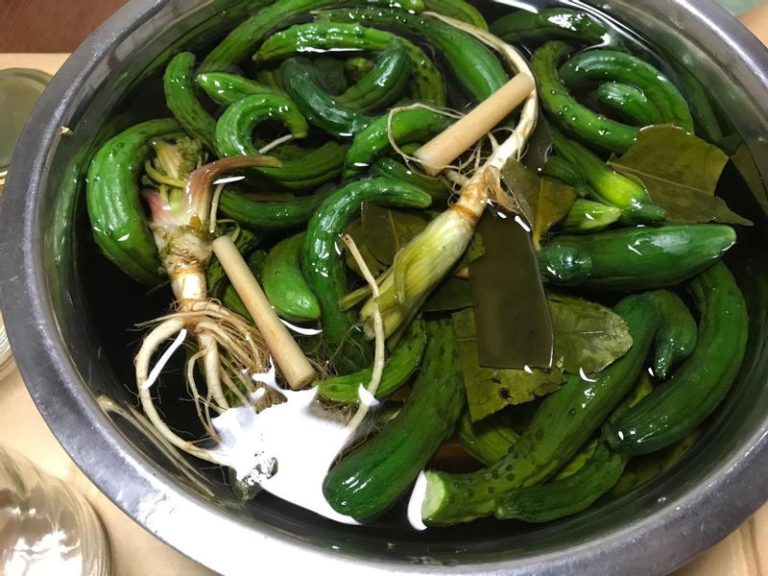
Wakamatsu adds, “The juice for pickling the cucumbers has a mild flavor. I also season it with cilantro roots and bits of lemongrass, which would have been thrown away at the curry house.”
This is how “pickles made by a farmer and a curry house” came into being.
Addressing the challenges of farming through off-spec vegetable pickles
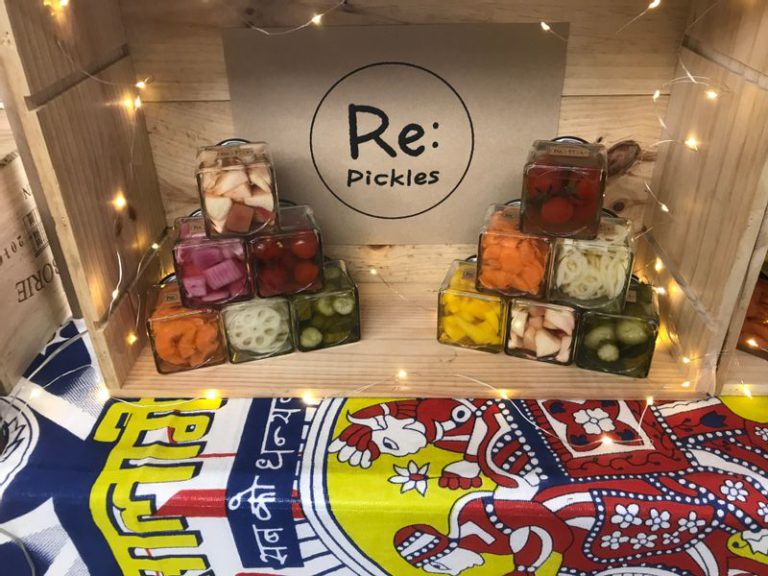
After about a year of development, Re: pickles was perfected in 2019 and renamed from “Pickles made by a farmer and a curry house.” When the pickles were tested at a market, they proved so popular that extra production had to be rushed.
“Face-to-face sales are key. We can inform consumers about the issues of discarded vegetables and food waste. This style of selling is something we hope to continue,” says Wakamatsu.
Although the production of Re: pickles has been suspended since the COVID-19 pandemic, Wakamatsu is taking other steps to reduce the amount of food waste.
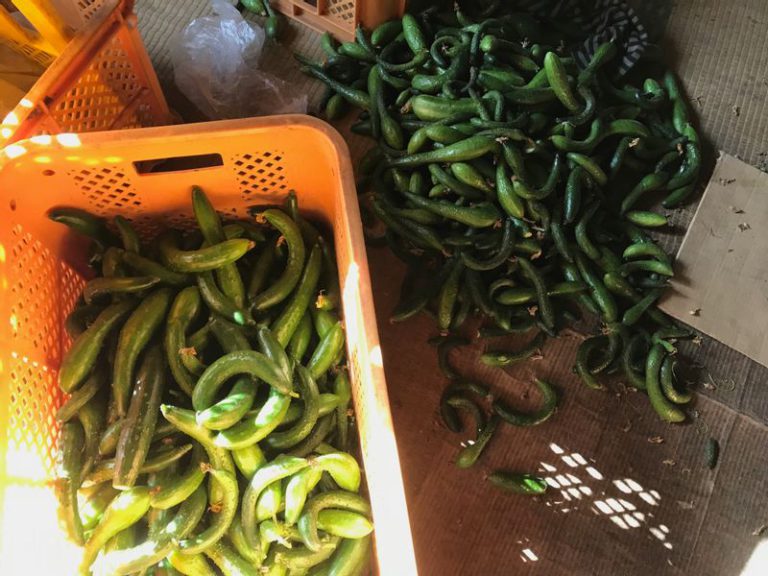
“We now sell off-spec cucumbers directly in supermarkets. They look unattractive, but sell surprisingly well. Witnessing that makes me think about who the standard is for,” comments Wakamatsu.
Selling directly has been successful, and now almost no cucumbers are discarded. However, Wakamatsu has not given up on trying to sell Re: pickles again.
“We want to work with other farmers in the future,” he says, showing his ambition to expand the product line-up. He will continue addressing the industry’s challenges through Re: pickles.


